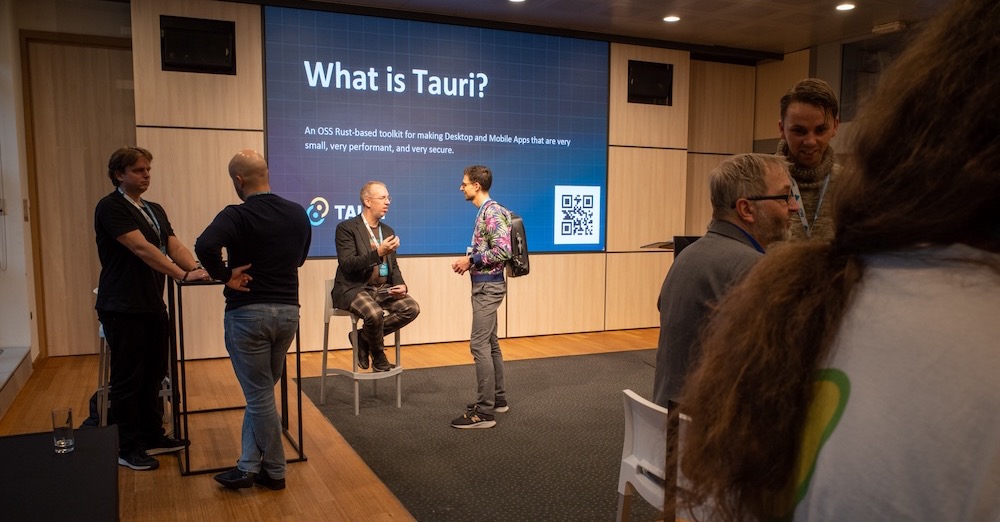We virtually attended the 5th Next Generation Internet forum held on November 15-16th, 2023, listening to some intriguing lectures from a range of innovators, policymakers, and other stakeholders. They laid out a strong vision for the future for the internet in Europe and suggestions for how we can shape it to suit ordinary citizens.
They envision an internet that learns from the mistakes of the past and upholds the original values of openness and egality with benefits for everyone. Alongside this idea of the internet as common resource, it emphasized safety and the European values of collaboration, with a number of visions and new technologies revealing how we can change the direction of travel.
Within the broad, technological scope of the forum, many of the topics discussed have great relevance to the water industry. A Next Generation Internet based upon openness and common benefits could shape how everyone, from water utilities through to grassroots organizations, embraces the future.

An initiative of the European Commission, the The Next Generation Internet (NGI) lays out a new evolutionary path for the internet, rebuilding it as something that rests upon a foundation of trust. Following the principles laid out in the European Declaration on Digital Rights and Principles, the new model for the internet returns it to the original open vision aimed at citizens. The NGI will respond to people’s needs and rely upon trust and inclusion rather than information monopolies and siloes.
During his speech, Director-General of DG CONNECT at the European Commission, Roberto Viola, described the philosophy of the Next Generation Internet:
“How to make the internet that works according to the initial idea that was the biggest step in terms of shared knowledge of mankind, the biggest democratic step towards everyone having their say to learn to change the world for better.”
Among a range of topics, a common thread explored how we foster new technologies and innovation while creating a sustainable digital ecosystem that is open and transparent for the benefit of everyone. The forum discussed how Europe can promote ‘digital commons’ with shared resources that are available to everyone. A number of speakers also discussed open-source software and solutions that will challenge the present technological hegemony to foster a more decentralised, federalised cyberspace.

French Ambassador for Digital Affairs, Henri Verdier described the importance of digital commons in his address:
“States have lost their monopoly on public infrastructure. We discover that innovators, companies, small groups of activists, or even communities with millions of contributors can also build resources. Digital commons are fully realizable immaterial goods produced and managed by an open community of actors sharing collective values and rules. They can be free software, open standards, open data and content, software building bricks that can be exploited for new solutions, or sometimes physical infrastructure.”
But what does it mean for the water industry? How will the Next Generation Internet with its open-source approach and digital commons affect the sector?
What Does NGI Mean for the Water Industry?
The forum revealed a number of interesting trends and technologies that are directly or indirectly relevant to the water industry. Some of the topics discussed at the forum included digital identity, a more decentralized approach to social media, and how to keep the whole supply chain for open-source software secure. Indeed, the tendency to embrace open-source technology, cybersecurity, and standardizing qualifications are topics already shaping the water sector.
Open Source and Cybersecurity
One particular point of interest is the emphasis on open-source technology as a way to bring an egalitarian internet. Many of the apps and software used by utilities, start-ups, and even homes already use open-source technology at their heart. Naturally, this raises the question of cybersecurity for open-source systems and how we ensure that the systems used are safe and difficult to exploit.
A number of state and non-state actors can potentially affect infrastructure with cyberattacks and other disruptions. In addition, with more and more jurisdictions, including the EU, bringing in stringent data protection laws, this is crucial for companies in an age of data sharing. As an example, water utilities using smart meters with two-way data exchanges need to be very aware of this.
Given that more and more organisations are moving towards open-source software and technology, cybersecurity is crucial across the whole open-source supply chain. Anthony Harrison, of APH10, noted that too many organisations assume that software is safe just because it is new. Melanie Rieback, of Radically Open Security, added that cybersecurity audits are important for all organisations, from large companies down to individual activists.
One way of ensuring this is through cybersecurity audits across the entirety of an open-source project to ensure that every vulnerability is as free from vulnerabilities as possible. With a plethora of start-ups and smaller grass-roots initiatives in the water sector developing apps, this could become increasingly important. Another potential solution is a Software Bill of Materials, which traces cybersecurity down through the supply chain, although this idea needs more support if the political mandates are to become reality.
The EU Digital Identity Wallet (EUDI)
One area of particular note, in line with the Electronic IDentification Authentication and trust Services Regulation (EIDAS), is the idea of an EU Digital Identity Wallet (EUDI) that allows people to store their qualifications and educational awards, transferring them between countries. At a time when many companies within the water industry face skills shortages as we move into Internet 4.0, sourcing qualified workers is crucial.
Of course, one of the most important principles is security, ensuring that people’s personal information is safe and cannot be misused. The digital wallet will allow people to verify their credentials while keeping their personal data secure and leaving them in control of their own information.
Apps
For organisations within the water sector developing apps, Daniel Thompson-Yvetot of Tauri, an OS toolkit used to make apps, noted the benefits of their technology. Tauri is streamlined and avoids downloading the volumes of unnecessary data that add up into huge costs in energy, affecting costs and the environment.
A smaller app is also more secure and performs much better, while Tauri encourages a security mindset for developing cybersecure software and a security-audited framework to ensure the onus does not fall completely upon individual developers. Tauri can also comply with the cybersecurity resilience act, which is good news for developers in the EU.
Education
The forum also showed an interesting alternative for educators within the water industry who are keen to move away from the advert-dominated video sites such as YouTube and Twitch. Pouhiou Lafon Roudier of Framasoft pointed to PeerTube, intended to help streamers and educations migrate from Google and Amazon by connecting smaller platforms to democratise video hosting. A number of media organisations, educators, institutions, and even the European Commission are adopting the site, which uses open-source technology.
Looking to the Future
Overall, the NGI forum provided an interesting and informative series of talks and workshops that laid out the future of the internet in Europe, built on the foundations of openness and shared resources. Indeed, that is exactly what the internet promised decades ago before the emergence of a few dominant players.
For anyone working in the water sector, especially those looking to digitalization, developing software and apps, or developing a social media strategy, there are many lessons for the future and perhaps a roadmap for adapting and following the general trends.
Learn more at https://ngiforum2023.eu/







